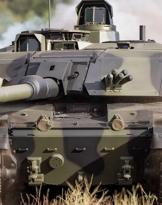The situation is slowly getting out of hand, with the United States and allies who can no longer contain the ever-expanding Isis octopus.
The risk, no longer so remote, is that Libya can become the cradle of global terrorism.
Isis groups have been reported in Benghazi, Derna and Sirte, while at least three training camps continue to provide a steady flow of recruits.
The situation is so serious that the US State Department has officially declared that “there is no tangible progress, the country is not safe, but it is up to the Libyan people to take the reins of their future. We can help them, but the choice must be made by the Libyan people ”. Translated: sending an earthly force is pure utopia. This war will have to be fought by the Libyans and by those who want to oppose Isis.

In a recent US intelligence report, read before the Senate Armed Forces Commission, Libya has been called a safe haven for ISIS and for at least six other terrorist groups, including Ansar al-Sharia, who marched with police vehicles at Benghazi last month.
After the fall of the Libyan dictator Muammar Gaddafi, civil war broke out between rival Islamist factions in what was to become the new Libya.
The central figure was that of Abdelhakim Belhadj (photo), a character once courted by the Obama administration and the Congress, but who now leads a political faction that supports the creation of the Sharia. The lesson from Belhadj is that the United States cannot rely on third parties to achieve its goal in the region.
But for ISIS, other background events are about to open. Because if it is true that on the one hand, the establishment of Islamic groups in Libya reflects one of the greatest political failures of the Arab spring, on the other the Caliphate will encounter serious difficulties in conquering and unifying North Africa and their tribes, governmental militias and political groups.
Franco Iacch












